Tanpinar (1901-1962) is one of the deans of Turkish literature, according to Orhan Pamuk, he of the Nobel Prize for literature. The master narrative of Tanpinar’s novels is its identity. Is Turkey Asian and Islamic or European and secular if not Christian. Is Turkey a traditional society rooted to and limited to the past or modern society making and re-making itself.
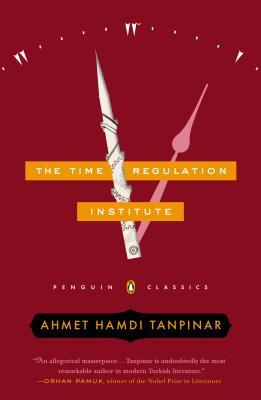
These themes are embodied in the satire in the creation and evolution of the Time Regulation Institute, a private corporation which, for a fee, will adjust clocks and watches to the right time in kiosks around the country. As life becomes more regulated, the demand for this service grows. No longer do sunrise, high noon, or sunset mark the days but rather hours and minutes.
The corporation is paternalistic, nepotistic, sexist, incompetent, and succeeds despite itself. It becomes home to a psychoanalyst who wishes to study its members, an alchemist who wants to use the clockwork mechanism for some purpose or other but he is secretive about it, wives, nephews, cousins, European trained scientists who cannot get any other work in a society where suspicion of foreign taint is routine, concubines, and wastrels. Its counter staff are all attractive young men and women in smart uniforms and they rake in the dosh.
After four hundred pages all this is laboured. The novel unfolds as a memoir by Hayri Irdal, the Institute’s first employee. There is much background of the various, idiosyncratic, zany members of his family, and the brooding presence during his formative years of a large long case clock that seems to work when it wanted to and at no other time.
The Institute is so successful that it attracts the interest of the government in search of tax revenue, and other shysters in search of easy opportunities. In the wings we have a double murder and suicide involving Irdal’s relations and friends. None of it taken too seriously.
In a difficult press conference in the early days of the Institute a parable was used to explain its purpose. Ahmet the Timely from centuries ago was quoted and his sagacity struck a nerve in the public. There was a demand to learn more of this sage. Despite qualms, Irdal writes a biography of this completely fabricated character, which is a great success and does much to cement the place of the Institute, despite the quibbles of some pin headed dopes in universities who point out that this man never existed.
The satire is the superficiality of it all, which in fact leads to its success. The fact that Ahmet did not exit frees Irdal from sticking to boring facts. The fact that no one needs to have the time regulated makes it a perfect commodity.
Perhaps to a Turkish reader what is most conspicuous is what is not said. Not a word about women’s head scarfs in the many references to the uniforms. Not a word about the calls to prayers five times a day as regulators of life.
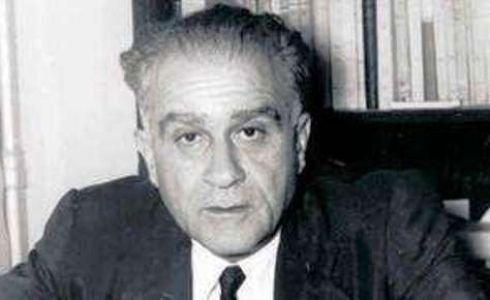 Ahmet Tanpinar
Ahmet Tanpinar
As with Russian novels, I continue to find it hard to distinguish the characters by name, the more so with women whose names are strings of letters. How parochial am I.
Category: Book Review
‘Perfect Cities: Chicago’s Utopias of 1893’ (1991) by James Gilbert
The book profiles the several Chicagos that co-existed in 1893 when the World’s Columbian Exposition (the official shortened name for the World’s Fair: Columbian Exposition, also known as The Chicago World’s Fair and Chicago Columbian Exposition. Against the odds, Chicago wrested the right to hold the Fair from New York City. The sniping from New York City was without end.
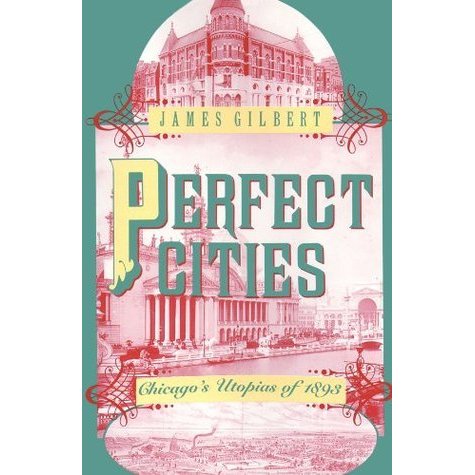
I saw a miniature replica of the White City of the Chicago World’s Fair at the Durham Museum in Omaha a few years ago. I had forgotten that sight until I read this book.
The White City that was the heart of the Exposition. All of its buildings were neoclassical in style, plastered in a shining material, and painted white. In addition, outdoor lighting, including street lighting, was used extensively as electricity was promoted as the future. Some things are not said. The White City was a front in the contest between direct and alternating current electricity which Nicolas Tesla eventually won, though Thomas Alva Edison, who lost, made the money. The White City was not only painted white so as to gleam and glisten in the sunshine, but also to reflect the light of the electric lamps throughout. It was brighter at night than on many a dreary day. Also unsaid is that the White City was the site of the first labeled serial murderer who stalked victims in the nocturnal White City, a fact suppressed at the time in the interest of keeping the 27 million tourists coming. Yes, 27,000,000. The Fair was intended to showcase the arts, industry, and science, but most of all to showcase Chicago as a city of the future. In cooperation with the railroads, the Fair was a tourist attraction that brought tourists from far and wide, e.g, 25,000 from Connecticut alone.
By the way the construction was largely intended to be temporary. In any event nearly all of it burned down in two fires in 1894 and 1895. One building made to last remains and that is the Field Museum endowed by Marshall Field of the department store that has been subsumed by that orca of department stores, Macy’s, once confined to Fifth Avenue, it now roams the retail waters everywhere.
To make travelling easy, many guidebooks were published and distributed widely, sometimes freely. The author’s analysis of what these guidebooks include and do not include is clever, creative, and informative. Like the Fair itself, they emphasise the future and disregard the past, in their case the real city of Chicago with tenements, union unrest, child labor, alcoholism, and disease, still less the stockyards, of which nothing was said. We have also noticed how contemporary guidebooks handle the darker side of things, and the differences among guidebooks when we have consulted more than one.
By the way the World’s Fair was called that because one of its founding and long term sponsors was the newspaper the ‘New York World’, which also sponsored later the baseball World Series, and hence the origins of that name, too, neither being the example of parochial American imperialism that pin heads often assume.
One of the cities is Pullman Village, built by the railroad entrepreneur George Pullman whose business model was to sell comfort and luxury, and micromanage to achieve it. His underlying thesis was that salubrious surroundings would bring out the best in people, a common belief in the Victorian Era. If we want to stop men spitting, then lay down carpets and they will not spit. All of this was designed to encourage women to travel, too, and ergo to encourage families to travel together. That was also part of his thinking, men travelling with families would act better than men travelling among only other men. The locker room versus the tea party, that might be the comparison. (That was the reasoning when dormitories on college campuses went co-ed. It would lead to improved behaviour among the lads. Wonder if anyone has collected evidence on that one?)
His business model was this: he leased his sleeper, lounge, kitchen, and dining cars to railroads; he did not sell them. With these cars went Pullman’s staff: porters, chefs, waiters, conductors, who were trained in his approach to courtesy and service. No matter which railroad, a Pullman car offered the same service, accommodation, food, and so on.
He also thought he could shape his workforce just as he hoped to shape his clientele, so he built the Pullman Village around the factory where the railway cars were built, and offered a very good standard of housing, shopping, access to fresh food, schools, theatre, exercises for the family together and so on. Nothing is said, but I assume it was racially segregated. Indeed virtually nothing is said about race.
By the way Pullman was inspired to build this village by a visit to Saltaire in Leeds. Titus Salt was in turn inspired by William Morris and Robert Owen, important figures in the utopia tradition.
Paternalist that he was, Pullman could not abide growing unionism in railroads, sometimes led by Eugene Debs, and his intransigence precipitated that infamous Pullman Strike in 1894 that led to the ruin of his company. In sum, times turned down, Pullman cut wages by a third but would not reduce the rent he collected from workers in the Village. Of course others lost their jobs and with the loss of the job they also lost the housing in the Village. He would not compromise one inch and even the local newspapers owned by his peers and friends turned against him. Nonetheless, the incompetent Grover Cleveland turned the army loose. Douglas MacArthur was there, practising for his later efforts at Hooverville.
Another of the cities is Harvey Illinois which was also a planned workers’ community inspired by the evangelist Dwight Moody. Moody was a major figure in the region, in part, because he was more pragmatic about entertainments like music, singing, and dancing than many of the Elmer Gantry rivals. The robber baron Turlington Harvey built Harvey under his influence. When Harvey lost interest it quickly reverted to the norm.
One of the most interesting but hardest to fathom parts of the book is the account of The Midway which, I think, was the fun fair associated with the Exposition. It offered cultural variety and light entertainments, approved by a board of elders. Perhaps I blinked too many times, but I never did grasp the author’s point in the recurrent references to it.
 James Gilbert of the University of Maryland
James Gilbert of the University of Maryland
The author uses the words ‘utopia’ and ‘utopian’ a number of times without stipulation. The only meaning I can read in his use is planned, on the assumption that a well planned city will continue in the way planned. Of course the White City was also built, perhaps, metaphorically to usher in a spotless future. Pullman and Harvey were built to promote certain kinds of better conduct, and that is part of the promise of utopia, but better is very limited to sobriety, courtesy, work ethic, and so on.
I read it in anticipation of spending a week in Chicago in March 2016.
On the murders see ‘The Devil in the White City’ (2004) by Erik Larson.
Tacitus on the Molonglo.
A few thoughts provoked by reading Lara Tingle’s ‘Political Amnesia: How We Forgot How To Govern’ In ‘Quarterly Essay 60.’
It is one of the few ‘Quarterly Essays’ to have an argument. What is it then?
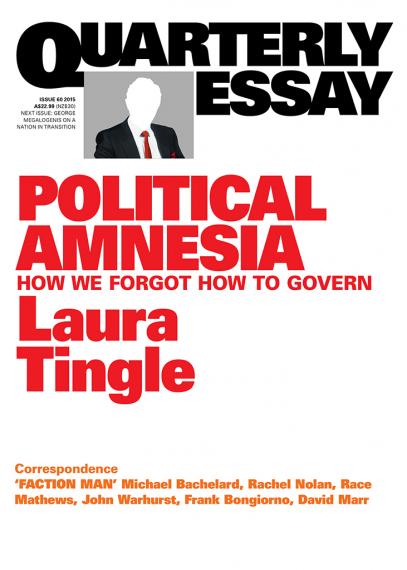
The premise is that corporate memory is a valuable asset in complex organisations to operate in a large and varied environment, and ever changing environment. Government is one such organisation that works better if corporate memory is present. Those seem to be the most relevant assumptions.
The argument then is that corporate memory has been systemically, if inadvertedly, reduced in the Australian Commonwealth Government since the 1980s. The signal indication of this was the shift from tenure to higher pay for the elite of the public service. That was the end of the permanent department head, and by implication the end of any permanence down the ladder in the public service.
Tingle gives several reasons, a compound of these elements:
1. contracting out public services so that the remaining public servants do not have first hand experience at delivery and so do not know the problems and opportunities in the field. It is certainly true that I have spoken to public servants who write contracts for others to bid on to deliver services, and these contract-writers have no firsthand experience in the field. They say they rely on the contractors, because the competitive market will keep them honest. (Did someone say that about the Australian Wheat Board?)
2. the contractors come and go and even those that recur have a staff turnover that limits their memory as well. One of the goals of contracting out is to cut cost, the chief one being something that is never said: superannuation. The unfunded liability of the Commonwealth government for public servants’ superannuation is astronomical and seemed to grow exponentially. Those commitments were reduced for the future, but the historical legacy is still enormous. To avoid a colossal increase the key is to have fewer public servants.
3. public servants find career is best served by avoiding service delivery departments (an old one). Those public servants who remain discovered that expertise (developed in part by trial and error) is no longer valued and so it no longer valuable in career advancement. Service delivery is hard, exhausting, and can go wrong. Drafting policy papers is none of that.
4. career is made by moving from one department to another rather than concentrating on one speciality. Here we have that old chestnut that management/policy/administration is generic, neither carrying nor requiring specific knowledge. Indeed such knowledge is a hinderance.
5. at a second level appointed ministerial staff have replaced public servants in policy and program development and they come with no corporate memory and move on without leaving any behind.
6. ministers move from one portfolio to another, especially when moving from opposition to government. They do not know what they do not know. That is so simple and obvious and yet hard to explain to a third party, let along to a principal.
7. new ministers distrust public servants in the increasing polarised atmosphere of Canberra. I expect this one is crucial. The air of conspiracy and menace in Canberra seems to increase every year. Partly the media appetite for dirt subjects every move to hours of video and talking head scrutiny. Many in opposition set themselves against both the Government of the day and all who assist it, namely, the public servants. The flexibility in employment introduced by Labor when permanent heads of departments were abolished, now makes it easy to deal with those enemies once in office.
8. the repeated purges of the public service have left one memory among public servants, that is to keep heads down. The endless, repeated cuts in the public service have not only lowered the morale of the public service, though no one will admit it, it has also discouraged people from supposing there is a lifetime career there. It is not just movement between departments but also the movement out of the public service that diminishes the talent pool.
9. the blind faith that the market will generate a response, e.g., a sufficient number of skilled and qualified tradesmen to install insulation in the political time line. This is an ancillary point.
Overall the essay sounds curmudgeonly and I like that but…. Remembering that ‘we tried it before and it did not work,’ well, yes, and I have said that myself more than once in my little patch, but it is also true that times change and perhaps the time is now right. I saw ideas fail, and then arise again and work. It does happen.
To this reader the stronger ground for the argument is that memory of how to work the process, negotiate with the cross bench, involve parliamentary committees, respect parliamentary draftsman…. When this memory is lost mistakes will be made and repeated, forgotten and repeated again.
My caveat to the argument is this: The waves of retrenchments, downsizing, has not just shed people, it has also shed expertise (as distinct) from memory which has not been replaced like parliamentary draftsmen.
The short cycle of elections has always been with us, and the media has always been rapacious.
Tingle also makes a good point about the transition from opposition to government that I would give more emphasis. A leader of opposition works very closely with a very small staff due to funding, office space, convenience, and so on. There is something of a bunker mentality in most opposition leader’s offices: us versus them. The Opposition leader alone challenges the sitting government. The media certainly play it that way. Add to that a long tenure as opposition leader and these tendencies deepen.
In a polarised atmosphere my enemy’s friend is my enemy. Public servants who work hard and closely with the government of the day can become, to an opposition leader, such enemies-by-association. Hence the now recurrent purges of public servants when government change.
The silent assumption is that there are plenty of hard working, bright, and talented people to take over. There are always plenty of people who think they fit that description. Or is the assumption that talent does not matter. By ‘talent’ I wrap together memory and expertise to keep the terminology simple.
For shadow ministers in opposition who have never been a minister, parliament might be something like theatre. Huh?
They see many plays, each and everyday, but they have never been behind the scenery and have never seen any of the stage machinery and stage management that puts on the show, have not talked to the carpenters who built the scenery or electricians who handle the lights. Theatre critics concentrate on the result without a thought to the production. Fine for them as critics who do not aspire to be producers. But shadow ministers who criticise ministers aspire to be ministers.
There is a learning curve in the transition from opposition front bench to minister that is seldom recognised by new ministers who carry attitudes, habits, expectations, ambitions formed in opposition to government. The gap between opposition and government is also abridged by journalists who refer to shadow ministers as ministers. Grrr, ABC journalists do this, I am told, partly to inflate the importance of an interview in the minds of viewers and to flatter the interviewee. There are so many excuses for stupidity.
The most troublesome part of the luggage a new minister carries is the conviction that for a minister to say it is so makes is so. All it takes is will power! The details, leave those to others, and focus on the big picture!
Pile those clichés high!
The devil hides in the detail. Those looking up at the big picture often step in potholes.
There is no right way to do the job, but mixed scanning, near and far, is the best way to learn. But of course one has to want to learn or to know that there is something to learn. Some in opposition do study the process, monitor committees, read interim reports, talk to public servants, make constructive criticisms and these few are more likely to make an easier transition to minister. But often such an approach is criticised by colleagues because it is not aggressive enough, not machismo enough. Who needs details when bluster is the coin of the realm.
Having said all that, I am not sure returning to the era of the Seven Dwarfs, i.e., permanent heads of departments would offer a net gain. Or would it be to trade one set of problems for another.
 Lara Tingle
Lara Tingle
Still any lengthy essay on contemporary politics that starts with rumination about Tacitus is must reading for nerds.
Rudolf and the Occult Arts
Emperor Rudi the Two was a retiring and secretive man by nature and nurture. Perhaps that made the lure of the Occult sciences all at the more congenial to him. While he would seldom leave the keep of his castle in Prague on Hrady hill, he would welcome anyone who claimed to have a secret to tell. Not gossip about people, but rather secrets about how the world works and the meaning beneath appearances.
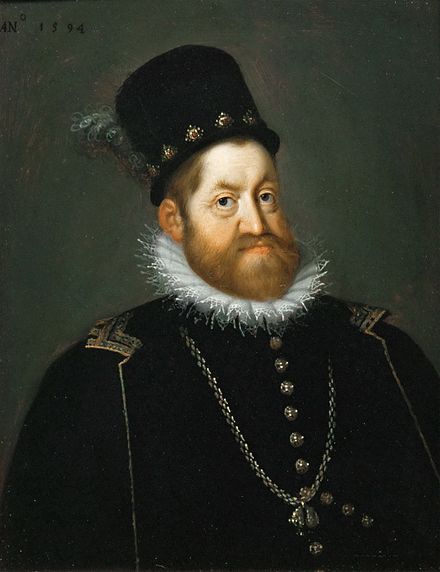
The Occult claimed to penetrate beyond the world of appearance and experience to the hidden reality that underlay it. Clues to this reality appeared to the cognoscenti in symbols and emblems from crosses to hexagons. An inspired artist was as likely as a scientist to chance upon these keys to the mysteries of the universe.
Alchemy was the most self-conscious of such sciences but not the only one. It was different from the later stereotype of a crazed individual throwing this and that together to see what happens, for alchemists in Sixteenth Century middle Europe comprised a disciplined school that followed certain principles. Rudi had as many as two hundred alchemist in his employ, with his own private laboratory where he did his own experiments.
The alchemists sought to control reality, not to understand it. Natural philosophers of the day sought knowledge, but the alchemists sought power.
The Occult belief in the reality of unseen things aligned them with much the religious mysticism of the era as did their denial of Enlightenment rationality. Most of their number ignored both Catholicism and Protestantism in preference to sui generis sects of neo-Platonism and such ilk. Secret rituals, incantations, E = MC squared, they were all on the same plane in the cosmology.
Rudi paid a high price for hermetic books that would open a door to the beyond. Many were written and published with his financial support. Many of the books ostensibly revealed the code, but were themselves coded. Some of them were so heavily encoded that no one could understand them. Indeed sometimes the more incomprehensible a text was, the higher the price it commanded. What a field for a charlatan. Or even a professor!
In a few years some of this would be codified under the Rose Cross of the Rosicrucians. Esoteric knowledge went on the curriculum.
All manner of Occultists went to Prague to take some of the Emperor’s gold while promising to replace it by creating gold from lead. Whether sincere or fraudulent, none delivered on the otherworldly promises.

In the same vein, the Occultist believed that some objects were transmitters or receivers of the hidden reality, usually gems of great beauty or perfection. Or unusual natural formations. Rudi was a one-man market for these things, and sometimes engaged in a bidding war with others to acquire them. Other bidders wanted them for their beauty and uniqueness, Rudi wanted to tune them into an Occult broadcast.
He funded the construction of many clockwork automata, partly because, like a Shinto follower in Japan, his spiritism meant even inanimate objects could channel the Occult. Many rooms in his ever growing palace complex housed these toys some life size and even lifelike. Imagine a stormy night in one of these warehouse of automatons with shutters banging, and floors creaking, glassy eyes staring. Spooky.
One of the many tenets of the Occult is that some geniuses are touchstones — like a medium at a séance — who hear, understand, or transmit (to a small and select audience) the secrets they receive. This knowledge is so fantastic, so powerful, so awe-inspiring most of us cannot fathom it. Indeed most of us would not recognise these profundities even if face-to-face with them, but if we did, then we would misuse it. It is best hidden from the ordinary people like thee and me. They are secrets in plain sight.
The steam from this kettle leads to the supposition that some geniuses leave coded messages in their works, poems, books, painting, statues. Often the code is numeric, especially in books. Think of Johnny Depp in ‘The Ninth Book’ or Dan Brown’s various larks. Accordingly, it is said that a genius like Plato hid his message in the seventh word in seventh line on seventh page of his seventh book. The Occultists then strive to determine which is the seventh book, which is the seventh page, which the seventh line, and the seventh word. The example, if crude, is nonetheless indicative of how such minds work.
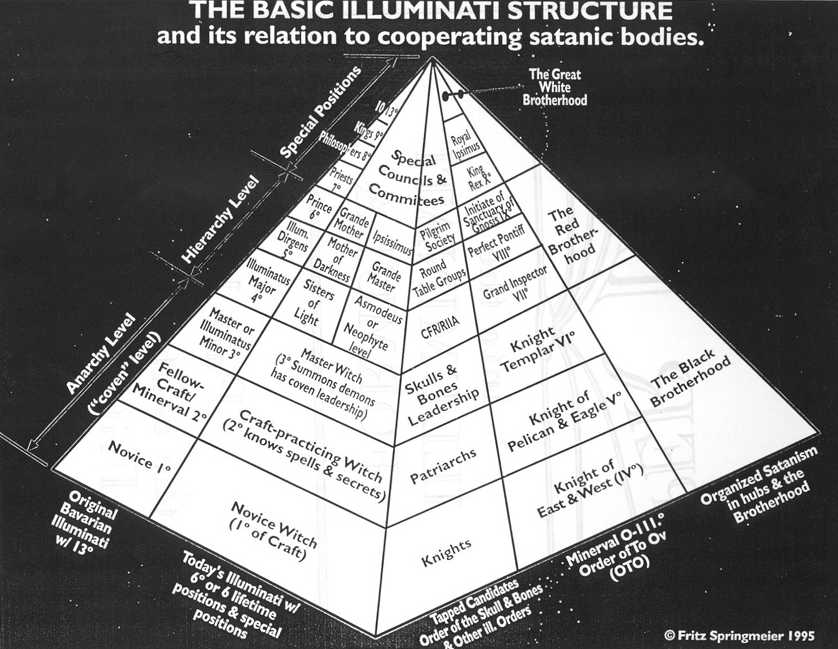
Plato’s text contains a coded message, perhaps several, and we have to find the key. To find the key, we disregard what Plato said explicitly and look instead at the incidental remarks, fillers, repetitions, seeming errors, non-sequiturs, apparent discontinuities – these offer the clues about whether it is the seven word or the ninth. The least important parts of a Platonic text may be in fact the most important.
Thus do some political theorists discount most of Plato’s explicit arguments and turn them upside down and inside out to arrive at conclusions that they alone can see. The example that comes to my mind is Plato’s repeated assertion that women equal men. Plato says this is different ways in three of his major works. A dedicated follower of the esoteric school of interpretation will conclude that the more Plato says it, the less he meant the knowing reader to take it at face value.
One can never win an argument with such an interpreter. And believe me, such interpreters exist.
To get back to Sixteenth Century Prague, Rudi also sponsored all manner of seminars which took the form of séances in many dark rooms in his palace. He did not often sit in himself, but he wanted to know what happened, and was inclined to be credulous. Though in his ecumenical way many of those he kept around him in court were skeptical and he permitted them to express their doubts.
By the way, when Rudi moved the capital out of Vienna it was not obvious that Prague was the best choice. There were plenty of other cities from which to choose in northern Italy, along the Danube, or in southern Germany. He chose Prague perhaps because it had a reputation as a religiously free(r) city than any other. It was not dominated by either an entrenched Catholic or Protestant establishment. These two had battled it out a hundred years earlier in Prague, murdering each other with great energy, and fell into an exhausted and dispirited peace where they (barely) tolerated each other. That would have suited Rudi who had no interested in religion beyond the most minimum formalities. A move to some other city might be seen as supporting the religion dominate in that place.
‘Sharpe’s Devil’ (1993) by Bernard Cornwall
This is the twenty-first novel in which Richard Sharpe’s career is recounted by a master story teller. As a teenager, Sharpe’s career started in India, but in these pages he is nearly forty, called once more into the breach.

The wife of an old friend solicits the assistance that only Sharpe can lend to find her husband, who has been lost in the fog of war in rebellious Chile in 1820-1821. He reluctantly leaves home and hearth in his farm in Normandy. It is a common set-up made fresh in Cornwall’s hands.
En route to distant Chile his ship calls stops for water at St. Helena. There Sharpe meets face-to-face the nemesis that has dominated his life from 1799, Napoleon Bonaparte. In the company of a group of a dozen Spanish officers with whom he is travelling, Sharpe is received by the Emperor. This scene is well realised. While everyone in the room is an officer, the Spaniards all decked out in grand uniforms for the occasion, there are only two soldiers in the room, and each recognises the other as that almost immediately. After some polite formalities Napoleon dismisses the gaudy Spaniards, so that he and Major Sharpe in a faded field jacket and he can talk about …,well, what else, Waterloo. For his part, Sharpe clearly sees in the sallow, pudgy little man, the inner warrior.
As well done as that is, at the time it seems window dressing, but read on.
In Chile Sharpe finds a mare’s nest. The Spanish officials range from incompetent to corrupt. The British consul is a useless. The rebels are not any better, back-biting and bak-stabbing.
Sharpe’s perception of the Spanish colonial administrator is insightful and amusing. He enters a room to find the governor surrounded by officials. Each is intense and focussed, none more so than the Captain-General Bautista.
“The Captain-General had resumed pacing up and down …stabbing more questions into his audience as he paced. How many cattle were in Valdivia’s slaughter yards? Had the supply ships arrived from Chiloe? Was there any news of Ruiz’s regiment? None? How many more weeks must they wait for those extra guns? Had the Puerto Crucero garrison test-fired their heated shot, and if so, what was their rate of fire? How long had it taken to heat the furnace from cold to operational heat? It was an impressive display, yet Sharpe felt unconvinced by it. It was almost as if Bautista was going through the motions of government merely so that no one could accuse him of dereliction when his province vanished from the maps of the Spanish Empire” (p. 88).
A few pages (p. 91) later the Captain-General outlines his strategy to defeat the rebels, which is to build ever larger fortifications and lure the rebels to their deaths before the cannons, if only Spain will send him more men, cannons, ammunition, and artillery men. It is, as Shape muses a strategy of doing nothing and shifting the blame for the result onto others, not enough cannons, not enough ammunition, poor artillerymen. In short, he has no strategy. The puff seems plausible because of the theatrical presentation. Why does this remind of briefings from some of my leaders? I could not possibly say.
The action scenes are so energetic that the reader suspends disbelief due to the momentum of the prose. Cornwall knows how to do this. The small rebel force succeeds by subterfuge, guile, surprise, and audacity and more audacity. It succeeds because the Spanish are poorly trained, poorly led, poorly equipped with rock bottom morale. While the Spanish have sturdy forts and many cannons, they have no reason to fight so far from home, being well aware of the corruption of their leadership. While the rebels are resilient, the Spanish are brittle. This, too, Cornwall does well.
 Bernard Cornwell
Bernard Cornwell
In addition to Sharpe, Cornwall has also published another many other novels on a variety of other themes from the Saxon Trails to the Copperhead Chronicles. Then there is the non-fiction. Wow!
The idiom a ‘mare’s nest’ traces back to the Sixteenth Century where it meant something extraordinary and remarkable. Indeed too remarkable to be a true, a hoax. By misuse, that god of idiom, came to mean something extraordinarily complicated and confused.
‘Kepler’ ( 1993 ) by John Banville
A novel with that super nerd Johannes Kepler in the leading role. It is part of a series of such eponymous works by the tireless John Banville, on whom there will be more later.
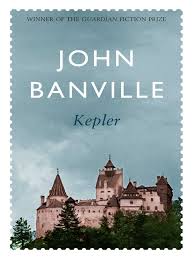
The young Kepler, having exhausted alternatives, goes to work for the great Dane Tycho Brahe who is sustained by that screwball emperor of the vestigial Holy Roman Empire, Rudolph II in Prague (been there). In so doing Kepler’s backstory unfolds in several flashbacks.
Kepler is a teacher whose tenure is precarious in a world still riven by the Great Schism and where schools exist at the whim of the local grandee. He marries largely for the dowry which is quickly spent on an inadequate model of the planets. His wife Barbara is seen only through his eyes as part whore and part harridan.
Brahe is a remote and glacial figure who treats Kepler as an underling, not a colleague. Tyco is moody, vague, and irascible by turns. Hardly the ideal patron, but Kepler has no alternative but to bear it. Rudolph is seldom seen, and exercises no influence, it seems. He just lets Brahe get on with it.
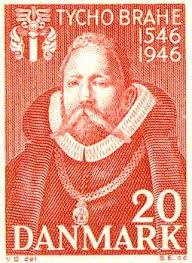
The atmosphere is laid on by the cement mixer load and gets in the way of both the plot, if there is one, and character development, if there is any.
The author tries too hard to create a foreign world by reaching for the dictionary and using as many an arcane words as possible each of which distracted my attention as I looked each of them up. Moreover, I soon lost patience with Kepler’s tongue-tied ineptitude. He blunders about like one of the Stooges alienating even his supporters. Now that may been historically accurate portrayal, but it does not inform, entertain, or enlighten a reader.
When he is offered the chance to explain his system to a patron (and thereby to the reader), he does not seem to know what to say and starts with the most minute details, quickly boring the auditor, and this reader, too. It is as though Kepler does not know the point either. I wondered if Banville was trying to show this as an example of pure research scoffed at by practical people, but if so, it fails. All I got was the urge to shake Johannes and tell him to get to the point, whatever it is.
Towards the middle of the book one finds a series of letters written by Kepler and the man revealed in these letters is not the bumbling oaf of the preceding pages. The letters are succinct, clear, and revealing. I do not know (yet) if they are real or imagined, but they are a relief of the clown Kepler of the earlier pages. Then in the last third we have Kepler again, not quite as bumbling and irritating. There is no explanation for the insertion of the letters and no indication at the end about their veracity. While there is an end note that mentions a biography of Kepler there is nary a word to explain Banville’s caricature.
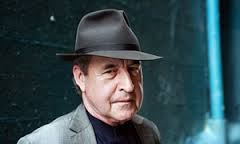 John Banville is a one-man industry with scores of books to his credit under a phalanx of pseudonyms, or so it seems. He writes contemporary novels, mostly set in Ireland under his own name, krimis featuring Dr Quirk under another name, still others as Benjamin Black, and this series of biographical novels about great scientists. It must be in the blood since his brother Vincent is also a busy author-bee, too. Sadly nothing in this book motivates me to read another.
John Banville is a one-man industry with scores of books to his credit under a phalanx of pseudonyms, or so it seems. He writes contemporary novels, mostly set in Ireland under his own name, krimis featuring Dr Quirk under another name, still others as Benjamin Black, and this series of biographical novels about great scientists. It must be in the blood since his brother Vincent is also a busy author-bee, too. Sadly nothing in this book motivates me to read another.
There was some added interest in that much of the novel takes place in Prague on that hill, which we visited in 2014. We walked through some of the rooms where Kepler worked. Moreover, that odd specimen Rudolph II, Holy Roman Emperor, is a character. This Rudolph sponsored all manner of invention and science. There is an excellent account of him in an ‘In Our Time’ episode from Lord Bragg. I have not been able to locate a biography of Rudi.
‘The Murder of Adam and Eve’ ( 2014) by William Dietrich
Two teenagers, aged 16 and 17, are chosen by aliens to justify the existence of humanity by preventing the murder of Adam and Eve. Such a trial of poor old humanity is a common premise in science fiction. Consider the Q Continuum for one.

That old chestnut is given a new twist in these pages by sending the pair — Ellie and Nick. — back in time to 50,000 B.C. to save themselves by saving the genetic forbearers of our species in East Africa, styled Adam and Eve.
Nick has all the egotistical misery and self doubt of a normal teenager, while Ellie is several classes out of his league, pretty, smart, decisive, and confident. Nick is a loner with few interests. But together they make something of a team, the more so with a box of matches, a Swiss Army knife, and few other things in their pockets when the trial began, but their greatest asset is Twenty-First Century knowledge (hygiene, maps, the wheel).
Yet for all their several advantages they have a lot to learn about living in Eden, stay downwind of the animal herds. That standing still while a lion passes in the distance is very hard when the fire ants swarm.
They do find the genetic bearers whom they call Click and Foxy, and they do try to protect them and also get them to move toward Sinai thanks to their Twenty-First Century knowledge of maps and cross into the Middle East in time to come.
In the course of these exertions they learn to kill, butcher, and eat, sometimes raw, wildebeest and other delights of the teeming flora and fauna. This is no place for vegetarians, vegans, lactose intolerants, etc., etc. They also learn to trust each other, and slowly win the trust of Click and his clan.

Woven into the story are comments, too many for this reader, about the dire straits of the environment in the Twenty-First Century and the looming environmental catastrophe that threatens the Earth. The self-destruction of planet Earth, a perfectly good piece of real estate, is what has prompted the aliens to intervene, thinking to reset this world by extinguishing Click (Adam) and Foxy (Eve) and let evolution start over. This is a clever idea for a plot.
There are two sub-plots to muddy the water, though the major twist was evident long before its revelation. Even so it was well done.
The suspicion of my acne years that high school science teachers are not human was at last vindicated.
Dietrich has a good ear for teen-speak though it is mercifully shorn of speech crutches of ‘like’ and ‘actually.’ Though the latter has long since migrated to adult speak. Quarantine failed on that one. He is even better at getting inside the mind of Nick, whose high school experiences perhaps reflect Dietrich’s own. I know they do reflect mine.
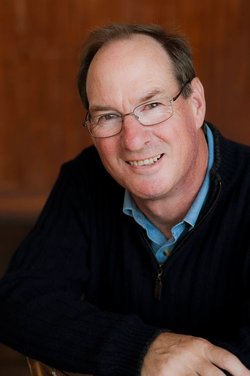 William Dietrich who is an accomplished writer whose Nathan Gage I have much enjoyed.
William Dietrich who is an accomplished writer whose Nathan Gage I have much enjoyed.
‘The House of the Mosque’ by Kader Abdolah (2010)
This book is a novel. Aqa Jaan and his family live in a house attached literally and figuratively to a mosque. In fact his family owns the ground upon which the mosque was built. Imams come and go but the Jaan family goes on and has done so for hundreds of years in the house of the mosque.

The story opens in the latter days of the reign of the Shah of Iran and ends twenty or so years later. That is, it encompasses the origins and start of the Iranian revolution that toppled the Shah, started a civil war among Iranians, led to a war with Iraq, and blood letting without end, all the while praising the God of peace. In pauses during the slaughter, there is much praying.

Leaving aside the details, the account has many, many parallels with the French Revolution, the Russian revolution, the Spanish Civil War, and no doubt others from Cuba to China and back. First the uprising, followed by increasingly brutal repression. Then victory for the revolutionaries followed by a purge, first of previous enemies, and then of tepid friends, and then as the paranoid of incumbency develops a cannibalism its own. Remember Robespierre? Revolutionaries eat their own.
Under the guise of the New Dawn, old grudges re-surface and old scores are settled with revolutionary justice, i.e., a bullet to the brain right here, right now. Anonymous denunciations are enough. Silence is betrayal. Any criticism, or hesitation is treason.
Some estimates of the death toll exacted by the Ayatollahs at 60,000. The Iran-Iraq War added another 1.5 million deaths. Iran being roughly four times larger than Iraq its military strategy was to win the war by piling up corpses. It was the same strategy General Alexander Haig favoured on the Western Front in World War I.
Aside from those generic features, the portrayal of the Ayatollah Komeini is interesting, and there is some explanation of the factions that existed in Iran before, during, and after the revolution.
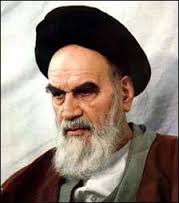
The trials and tribulations of the Jaan family are without end, though somehow a few of them survive and retain their faith in Islam despite its bastardisation during and after the revolution. As for many others, their faith is in God, not in the church.
Some gratuitous grostequieres like the Lizard.
I read it as an Ebook on the Kindle which means only saw the cover once in a poorly rendered graphic. Ergo when it came time to type these notes I had to make a point of opening the cover to get the title right and to get the author’s name. On the title page I could not find the year of publication.
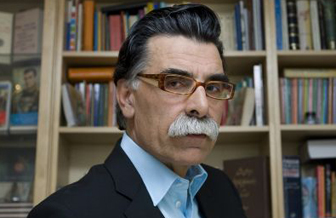 Kader Abdolah
Kader Abdolah
Translated into English from a Dutch translation. Odd that, I would have supposed the best thing is to translate from the original into English, not from Farsi to Dutch to English. Having said that, I found no faults with the translation, but then I might not but someone who knew Farsi might.
It was hard to keep track of characters because of the unfamiliar names, like those in nineteenth century Russian novels, and the over lapping webs of the extended family and the mosque.
‘Elmer Gantry’ (1927) by Sinclair Lewis
In this novel Lewis recounts the life and adventures of the title character with the sledgehammer subtlety that marks all of his work that I have read: ‘Arrowsmith’ and ‘Babbitt.’ In a generous mood, I will call it satire rather than sophomoric caricature.
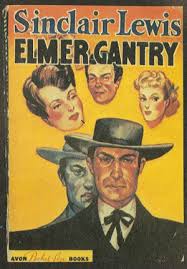
Elmer Gantry is a self-centred charlatan who starts out a travelling salesman selling anything and everything from snake oil to farm machinery to anyone with a dollar. He has a gift of the gab and personal charm that makes him a success, but he also has many faults that undermine that success, chiefly the faults of whiskey and women.
He learns to sell religion and salvation, and not only does that make money, but it also gives him a power that is so satisfying that, to some extent, he controls his faults. Indeed, he stops drinking altogether. Gantry enjoys the competitive element in drawing crowds and raising money against other rival churches and barnstorming evangelists. Most of all, he enjoys manipulating others, for which he seems to have a gift, i.e., people believe what he says, even those who should know better.
He uses and abuses believers, fellow preachers, and several women.
There are a few bon mots and a couple of well-turned phrases, but for three hundred pages the prose is, well, prosaic.
The telling is episodic and relentless in demonstrating Elmer’s one-dimensional unscrupulousness and complete amorality. There is no limit to Gantry’s mendacity, duplicity, and deceit. There is never a qualm of conscience. Never does he do something for another but always for Elmer over the forty year period covered in the book. He never seems to grow or to change. He switched addiction from booze to power, discovering he could still have women on the side. It becomes one note repeated again and again.
The only people who see through him are either bookish ineffectuals or the blackmailers, who are themselves so corrupt that they have to back off.
The underlying theme is that religious people are all fools in one way or another. Like those without religion, Sinclair cannot imagine what faith means to others.
There is one dramatic moment when Reverend Pengilly asks Elmer why he does not believe in God at the end of Chapter 27 and it not resolved and so becomes a non sequitur.
By far the most interesting character and the best part of the book concerns the strange evangelist Sharon Falconer. She is far more compelling than Gantry himself. She also seems to be sincere in her mission, though she likes the money, too. Doing well by doing good, as Ben Franklin did say. She seems to be a split personality. Lewis kills her off. That is approximately the middle third of the book.
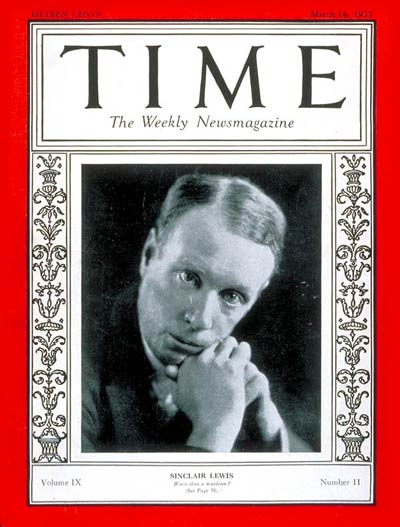 Sinclair Lewis on the cover of Time Magazine.
Sinclair Lewis on the cover of Time Magazine.
I retain a very strong recollection of the film ‘Elmer Gantry’ (1960), but had never read the book. In memory the film concentrates on Falconer. Time to do the homework. While travelling in Turkey, I downloaded it to the Kindle and read it.
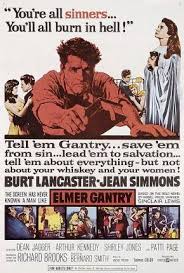 A lobby poster for the film.
A lobby poster for the film.
When I started reading the description of Elmer at the beginning brought to mind the very actor who embodied him in the film, Burt Lancaster. It seemed as though, Lewis created Elmer cased on Burt, though that is chronologically impossible.
‘Dear Committee Members’ (2014) by Julie Schumacher
I read it in one sitting, stifling laughs, snorts, and chuckles as I went. Set in academe though it is, like ‘Dilbert’ it resonants with life in any large organisation these days. The drive for ever more meaningless detail and perfunctory documentation that is never used is endless and general. Nor is it only in academe that one part of the organisation thrives while another starves. Then there is the snivelling twelve-year old from Tech who mocks those he supports.
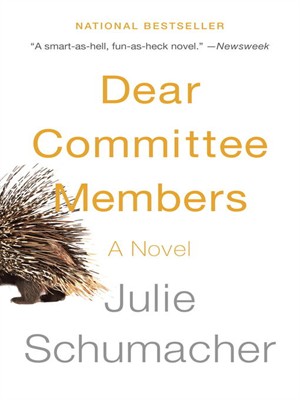
Professor Jay Fitger has long since made a separate peace with research and teaching, instead spending many a long day writing letters of recommendation for any and every one, each peppered with asides about life, his life, The universe, and the university that is grinding him to dust. An old salt, he knows many of his correspondents, been married to some, thrown-up on others, and takes that intimacy as licence to be ever more long-winded, circuitous, and explicit. Professor Fitger is surly, mendacious, anachronistic, energetic, and sharp along the edges.
His letters support students applying for internships (unpaid jobs), scholarships, two-week training workshops, jobs in mortuaries, summer jobs, places in a queue, and seminars taught by people Fitger despises but needs must, and for colleagues applying for tenure, part-time jobs, summer jobs in garage, meaningless awards, their own jobs twice in one year, honorary titles (more work for no money), and the use of the toilets where even that prerogative is limited. The point is, everything has to be applied for and every application must be supported by five letters of recommendation.
Fitger brings some of this load on himself since he never says no, and ends up writing in support of candidates — both students and professors — he does not know, nor want to know. along with those he knows and does not like. That is understandable. There are some colleagues, there are some students to whom it is far easier to say yes than no. If they want a letter it is best to do it, rather than try to talk them out of it. Safer, too.
His passing descriptions of colleagues brought tears to my eyes. Two-thirds of the members of his department bear the scars of long-term abuse from the university, mostly imagined but some real, and busy themselves tending to personal grudges like scraps of carrion on which they gnaw in the corners of the open-plan work space they now have instead of offices with doors. Few will survive the killing fields of administration in the next re-organisation. Fidget expects his department will be re-organised out of existence soon.
Against such threats to its existence there was the Department retreat where instead of discussing survival they argued for hours about the placement of a comma in a resolution that no one voted for when it was finally presented. Exhausted and frustrated, they turned to drink.
When not likening students to primordial ooze without individuality, Fitger says of one: she has endured the intellectual abuse and collective disdain for which this university is widely known, overcome administrative snafus of Orwellian proportions, and been penalised by other professors because she is his supervisee.
Though the best is perhaps the periodic correspondence with the campus Wellness Office about a disruptive student, one who terrorises the other twenty-nine in a discussion section, a fact deemed irrelevant to the Wellness Office, which repeatedly charges Fitger to be more supportive, understanding, and lenient. If not, then it is Fitger who is the problem! We have training courses for that! One more irritating complaint and off Fitger will go to be re-educated, Comrade Number One.
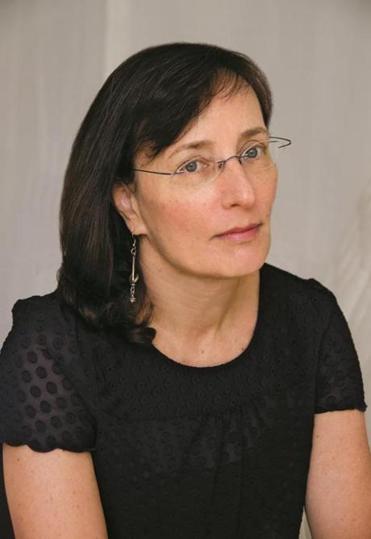 Julie Schumacher
Julie Schumacher
Class, there is further reading. Another tale told in letters is Mark Harris, ‘Wake up, Stupid’ (1959) which left me gasping for air in 1980, according to the records. Then there is Iain Pears’s ‘The Titian Committee’ (2004) in which the chair of the eponymous committee, despairing of achieving consensus among the fractious members of said committee, begins to murder them, one-by-one, in the hope that the survivors will be more pliable. As if! The survivors become even more determined to resist consensus. Evidence be damned!
